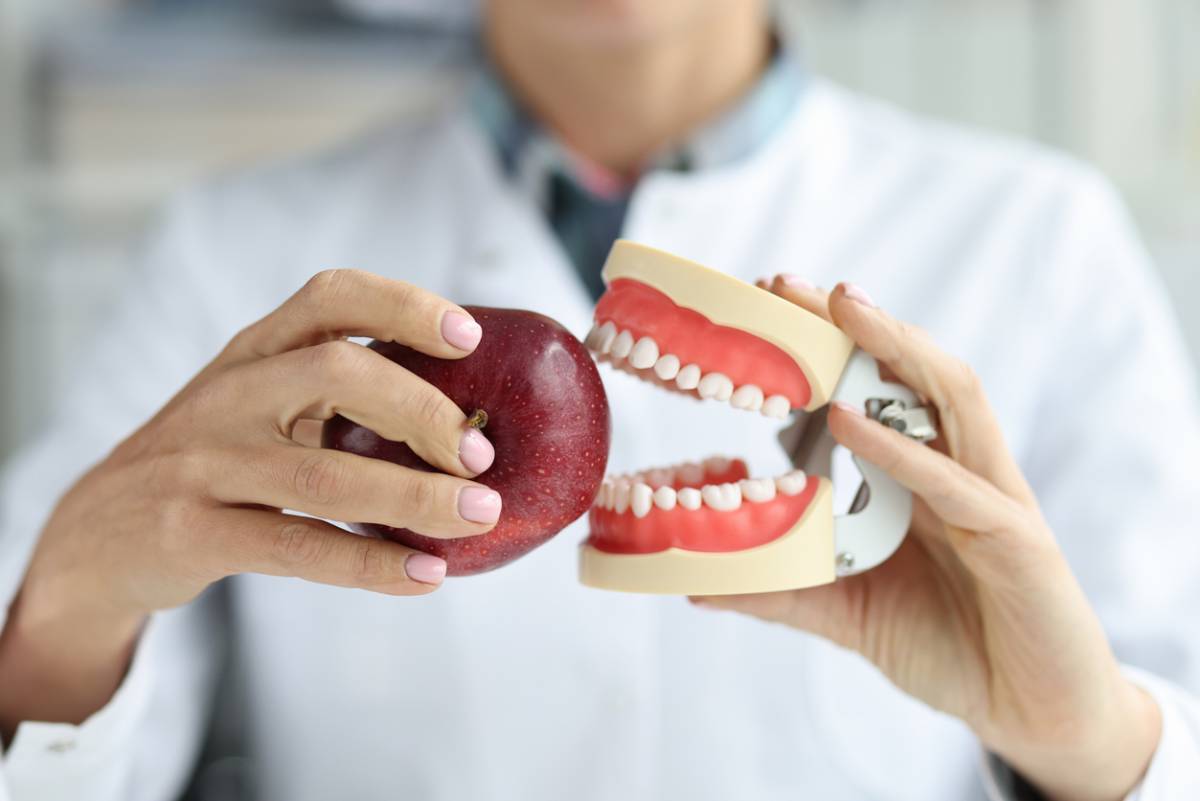
Getting new dentures feels exciting. You can smile with confidence again. But eating will feel different initially. Adjusting to them takes some time. Patience and practice are your best friends.
Eating Will Feel Different Initially
Your mouth needs to adapt. Muscles learn new movements. Your tongue finds its new space. Food textures will feel unfamiliar. This is completely normal. Don’t get discouraged early on. It’s a learning process.
Starting with Soft Foods
Begin your journey with soft foods. Scrambled eggs are a good choice. Mashed potatoes work well. Cooked vegetables are easy to chew. Yogurt, smoothies, and soups are great. This helps you get used to chewing. It reduces pressure on your gums.
Cutting Food into Small Pieces
Large bites are challenging. Cut your food into tiny portions. This reduces the chewing effort. It makes food easier to manage. Smaller pieces prevent dislodgement. This simple tip makes a big difference.
Chewing on Both Sides
Balance your chewing force. Bite with both sides of your mouth. This distributes pressure evenly. It prevents the denture from tipping. Uneven chewing can cause soreness. Practice this technique consistently.
Avoiding Sticky and Hard Foods
Sticky foods can dislodge dentures. Caramel, taffy, and gum are culprits. Hard foods can damage them. Nuts, hard candies, and crusty bread are examples. Avoid these initially. Gradually reintroduce them later.
Be Cautious with Hot and Cold
Dentures insulate your gums. You might not feel extreme temperatures. Test food temperature carefully. This prevents burns or discomfort. Sip drinks slowly to gauge heat. Be mindful of very cold items too.
Using Denture Adhesives (Initially)
Adhesives can offer extra stability. They provide a temporary bond. This helps during the adjustment phase. Apply a thin, even layer. Too much adhesive can cause issues. Consult your dentist for recommendations.
Practicing Eating at Home
Eat meals in a relaxed environment. Avoid social pressure initially. Practice makes perfect. Try different foods and techniques. This builds your confidence. You can experiment without worry.
Taking Small Sips of Liquids
Drink carefully with dentures. Large gulps can create suction issues. Sip liquids slowly. This helps maintain denture stability. It also prevents choking. Hydration is still important.
Being Mindful of Bones and Seeds
Small, hard objects are risky. Tiny bones can damage dentures. Seeds might get stuck underneath. Inspect your food before eating. Remove any potentially harmful pieces. Prevention is always better.
Chewing Slowly and Deliberately
Don’t rush your meals. Chew food thoroughly. This aids digestion. It also gives your muscles time to adapt. Slow chewing enhances control. It prevents sudden denture shifts.
Learning to Bite Properly
Biting can be tricky at first. Avoid biting directly with front teeth. This can tip the denture. Use your canines or premolars. Practice tearing food with side teeth. This technique improves stability.
The Importance of Good Fit
Well-fitting dentures are crucial. If they feel loose, see your dentist. Poor fit causes discomfort. It also makes eating harder. Regular adjustments might be needed. A good fit ensures better function.
Regular Dental Check-Ups
Follow-up appointments are vital. Your dentist checks the fit. They assess your oral health. They can make necessary adjustments. Denture relines might be needed. These visits maintain comfort.
Patience and Persistence
Adjustment takes varying times. Some adapt quickly. Others need more weeks or months. Don’t get discouraged. Keep practicing daily. Every meal is a step forward. You will get there eventually.
Avoiding Certain Habits
Don’t bite your nails. Avoid chewing on pens or ice. These habits can damage dentures. They put unnecessary strain on them. Protect your investment always. Be mindful of what you chew.
Cleaning Your Dentures Daily
Clean dentures after every meal. This removes food particles. It prevents odor and stains. Use a soft brush and denture cleaner. This also promotes good oral hygiene. Clean dentures stay more comfortable.
Massaging Your Gums
New dentures can irritate gums. Gently massage your gums daily. This improves blood circulation. It reduces soreness. It promotes healing and comfort. Use a soft toothbrush or your finger.
Speech Practice with Dentures
Eating and speaking are related. Practice speaking aloud. Read a book to yourself. Sing your favorite songs. This helps your tongue adapt. Clearer speech builds confidence.
Dealing with Sore Spots
Sore spots can develop. They indicate pressure points. Do not try to adjust your denture. See your dentist immediately. They can relieve the pressure. Prompt attention prevents ulcers.
Nutritional Considerations
Ensure you get enough nutrients. If eating is difficult, try soft nutrient-dense foods. Smoothies with protein powder are great. Consult a dietitian if needed. Proper nutrition supports healing.
Overdentures for Enhanced Stability
If traditional dentures remain loose, consider overdentures. They connect to dental implants. This offers superior stability. Chewing becomes much easier. Discuss this option with your dentist.
Learning to Enjoy Meals Again
Eating is a social pleasure. With practice, you’ll regain confidence. You can enjoy meals with friends. Savor your favorite foods once more. Dentures restore this important aspect of life.
Adjusting to eating with dentures requires patience, starting with soft foods, practicing balanced chewing, and regular dental check-ups for optimal comfort and function.
